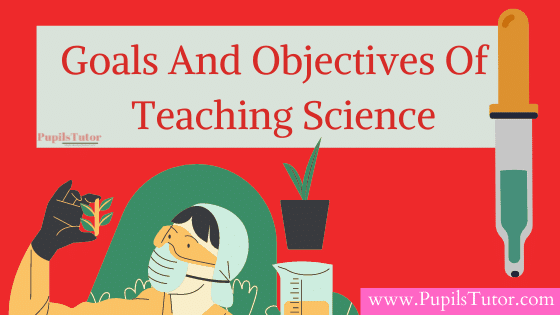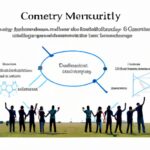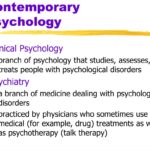Understanding the True Goal of Science: Knowledge, Innovation, and Societal Progress

Introduction: The Essence of Science
Science is a dynamic and ever-evolving discipline, rooted in the quest to explain, understand, and model reality. Its core objective is to build a reliable and expanding foundation of knowledge about the natural and social worlds. By adhering to systematic methods based on evidence, science seeks to answer fundamental questions about how our universe works, how its components interact, and how this knowledge can be used to address real-world challenges. This article provides a comprehensive exploration of science’s goals, the processes it employs, and practical pathways for individuals and communities to benefit from scientific advancements.
The Core Goal of Science: Building Knowledge and Understanding
The primary goal of science is to produce more accurate explanations and models of reality . This involves asking questions about the world, gathering evidence through observation and experimentation, and constructing theories that describe and predict natural phenomena. According to the University of California Museum of Paleontology, science aims “to produce more and more accurate natural explanations of how the natural world works, what its components are, and how the world got to be the way it is now” [1] .
Science is not only about accumulating facts; it is about developing models and explanations that help us make sense of complex systems. For example, the model of the atom has evolved over centuries, from early philosophical ideas to the quantum mechanical model used today in chemistry and physics. Each stage brought new understanding and practical applications, demonstrating how science refines its explanations over time.
How Science Pursues Its Goal: The Scientific Method and Evidence-Based Inquiry
Science achieves its goals through a systematic methodology based on evidence . The Science Council defines science as “the pursuit and application of knowledge and understanding of the natural and social world following a systematic methodology based on evidence” [3] . This process includes several key steps:
- Observation: Gathering data about a phenomenon, often using precise measurement tools.
- Hypothesis Formation: Proposing an explanation or model that can be tested.
- Experimentation: Designing and conducting experiments to test the hypothesis under controlled conditions.
- Analysis: Interpreting the results using critical thinking and statistical methods.
- Peer Review: Submitting findings for evaluation by other experts in the field.
- Replication: Repeating studies to ensure results are consistent and reliable.
This evidence-driven approach distinguishes scientific knowledge from opinion or speculation. For instance, in medical research, new treatments are rigorously tested through clinical trials before they are adopted in standard practice. This systematic scrutiny helps minimize error and bias, increasing public trust in scientific results.

Source: tffn.net
Pure Science vs. Applied Science: Expanding Knowledge and Solving Problems
Science can be divided into two broad categories: pure (or basic) science and applied science . Pure science is focused on understanding fundamental principles without necessarily considering immediate applications. For example, physicists studying the behavior of subatomic particles are primarily interested in uncovering the rules governing matter and energy [1] .
In contrast, applied science uses this foundational knowledge to address specific human needs and solve practical problems. A chemist might apply principles discovered through pure research to develop new drugs, materials, or technologies. Both approaches are essential: pure science expands our knowledge base, while applied science translates that knowledge into innovations that improve quality of life.
For example, the development of vaccines drew upon decades of pure research in microbiology and immunology, ultimately leading to life-saving public health interventions. Similarly, advances in computing have been driven by both theoretical research in mathematics and practical applications in engineering.

Source: steppingstonestofi.com
Science as a Collective and Ongoing Endeavor
Science is a collective, cumulative process . It builds on the discoveries of previous generations and invites continuous questioning and refinement. Scientific knowledge is always open to revision in light of new evidence or better theories. This willingness to adapt and self-correct is a hallmark of the scientific enterprise [2] .
For those seeking to contribute to or benefit from science, participation can take many forms. Students and professionals can join scientific communities, attend conferences, or pursue formal education in scientific disciplines. Citizens can engage with science by supporting research initiatives, participating in citizen science projects, or advocating for evidence-based policies.
Practical Steps to Engage with and Benefit from Science
There are several pathways to access and apply scientific knowledge:
- Pursue Education: Enroll in science courses at schools, colleges, or through online platforms. Many universities and community colleges offer introductory science classes that are open to the public.
- Participate in Citizen Science: Join projects that allow non-scientists to contribute to real research, such as biodiversity monitoring or astronomical observations. Organizations like the Zooniverse platform (link verified) host many such initiatives.
- Support Scientific Research: Donate to reputable research institutions or advocacy groups that fund scientific studies. Look for organizations affiliated with universities or established foundations.
- Advocate for Science Education and Policy: Support science-based curricula in schools and encourage local policymakers to make decisions grounded in scientific evidence. Stay informed about current issues through trusted sources such as the National Academies or peer-reviewed journals.
- Apply Scientific Thinking: Use evidence-based reasoning in daily life. For example, when evaluating health claims, look for references to peer-reviewed studies or guidance from agencies like the Centers for Disease Control and Prevention.
When searching for credible scientific information online, prioritize resources from established organizations, universities, or government agencies. For example, the National Institutes of Health (NIH), the National Aeronautics and Space Administration (NASA), and the U.S. Geological Survey (USGS) maintain extensive, publicly accessible databases and educational materials.
Challenges and Alternatives in the Pursuit of Scientific Goals
While science aims for objectivity and accuracy, it faces challenges such as limited resources, ethical dilemmas, and the risk of bias. Reproducibility-ensuring that results can be independently confirmed-is a persistent concern. Moreover, the increasing complexity of scientific questions sometimes requires interdisciplinary collaboration and new methodologies.
Alternatives to traditional scientific inquiry include community-based participatory research, which involves local stakeholders in the design and implementation of studies. In some cases, indigenous knowledge systems provide valuable insights that complement scientific perspectives, especially in areas like environmental conservation and resource management.
Summary: The Value of Science in Society
The ultimate goal of science is to enhance our understanding of the world by building, testing, and refining models of reality. This process leads to innovations that benefit society, solve pressing problems, and inform public decision-making. By engaging with science-through education, participation, or advocacy-individuals and communities can leverage its power to improve quality of life and address challenges both locally and globally.
References
- [1] University of California Museum of Paleontology (2022). Science aims to explain and understand.
- [2] Science Made Simple (1995). Science definition – What is science?
- [3] Science Council (2024). Our definition of science.
- [4] National Institutes of Health (2025). Perspective: the role of science in society.
- [5] Zooniverse (2025). Citizen science projects.






